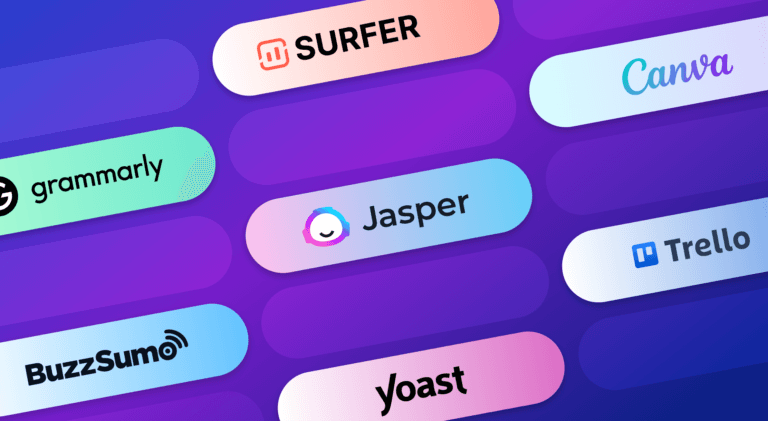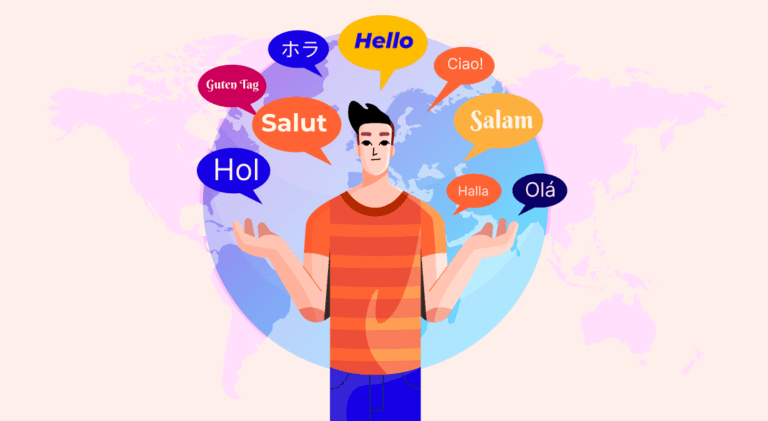21 Creative Ways to Use Social Media for Storytelling (With Examples)

Table of Contents
- Facebook
- Tell your stories using ‘Stories’
- Share your stories in posts
- Speak with pictures
- Have fun with long videos
- Interact live
- Ads in Sequences
- Instagram
- Narrate with Captions
- Visual Grids to tell your story
- Curating User-Generated Content
- Create Instagram Reels or Boomerangs
- Say it with IG Stories
- IGTV
- Twitter
- Kick up a Tweetstorm
- Pin your Twitter moments
- Speak with photos
- Tweet with GIFs
- Start your own hashtags
- Go with trending hashtags
- Snapchat
- Create a Snapchat geofilter
- Youtube
- Create a channel and a playlist
- All Social Media Platforms
- Create Infographics
- Develop a Story Arc
- Profile Pictures and Descriptions
- Symbolism
- Playlists
- Comments Sections
- Memes
- Conclusion
- Key Takeaways
- FAQs
Storytelling has always been proven to capture people’s attention and is now the most powerful tool in marketing. Stories tend to provide a connection and lend a clear picture to the audience.
How do stories help promote social media, especially when people prefer everything to be bite-sized to match their fast-paced lifestyle? Turns out, we can! There are numerous examples of how storytelling has helped companies and pages become brand names today.
Although, different social media platforms like Facebook, Instagram, and Twitter require different strategies of storytelling. With tailor-made storytelling ideas and styles, the eventual goal of brand promotion can be easily realized. Let us find out how.
1. Tell your stories using ‘Stories’
The evolution of the Stories segment in social media has come a long way. After Snapchat launched its ‘Stories’ section in 2013, other social media platforms quickly adopted this unique user-friendly mode of storytelling. Using Facebook Stories to your business arsenal is a great way to connect with your audience authentically.
2. Share your stories in posts
In a study by National Public Radio (NPR), it was found that audiences prefer to click on longer posts using the “See more” button rather than click on posts with external links to their websites or blogs.
For example, Terribly Tiny Tales, a micro-fiction page started in 2013 by Anuj Gosalia. It began by curating short stories of less than 140 characters and then moved on to longer stories, poems, and more, requiring the audience to see more. Despite longer stories, there was incredible engagement due to their meaningful and varied stories lapped up by more than a million followers.
3. Speak with pictures
Visual storytelling is a great idea to amass followers. This tends to be more relevant if you organize events and have a decent number of visitors or guests. Many restaurants and bars in Delhi and Mumbai post photo albums of their weekend events for their followers to share and increase customer loyalty.
4. Have fun with long videos
Facebook has devised a new algorithm that prioritizes longer videos for maximum engagement. Use this to your advantage by promoting your stories with videos, provided you have the time and resources. Popular YouTube pages like LADBible or Tasty post their videos on Facebook for a different fanbase from those on their YouTube pages.
5. Interact live
Audiences always want to connect with the pages or businesses. Going Live on Facebook is the most reliable method of interaction. It also ranks higher in Facebook Feed when they are live rather than when they end. Most popular pages engage in Q&A sessions or ‘get to know me better’ live events where they respond to queries from their followers. You can either do that or go for a structured script with a setup, build-up, and video resolution where you share tips or behind-the-scenes anecdotes to keep your audiences engaged.
6. Ads in sequences
Sequence your Facebook ads such that they tell your story. If you share your ads in a narrative sequence with an introduction, product information, and a call-to-action, it has been seen that it can have a much better impact on potential followers.
7. Narrate with captions
Your Instagram posts should have a narrative in their captions. Along with a high-resolution photo, it is imperative to have a captivating narration for your followers or potential followers with a story. Filled with beautiful stories from their customers, employees, or just a small narrative, in general, to keep the flow of engagement and conversation going, lifestyle and home decor brand Chumbak has nailed the storytelling game on Instagram. This one is a great social media storytelling example.
8. Visual grids to tell your story
Instagram grids have been the new trend for business pages on Instagram, and why not? It’s a creative way to share by using several posts to create a single image on your Instagram profile. It forces the user to go to your profile, and with the right appealing grid, you can gain new followers.
The Official Sabyasachi (@sabyasachiofficial) page uses this method without being overkill on its Instagram page with excellent results.
9. Curating User-Generated Content (UGC)
Many popular business profiles on Instagram curate UGC that have helped them grow their community and loyal followers. All you need to do is create an innovative hashtag and ask your followers to post, comment, or share their experiences with you. Example: Uber’s #ridewithuber resulted in millions of posts, comments, memes, videos, and more globally.
10. Create Instagram reels or boomerang
You can use short Instagram videos (<60 secs), Boomerang or Instagram Reels (<15 secs) for better engagement. The videos should tell a story about your business or yourself and should be able to hold your audience’s attention. A case in point is YouTuber Niharika NM’s page that garnered 1 million followers from 100k in just 60 days for her creative Instagram Reels.
11. Say it with IG stories
Similar to Facebook, IG stories are wildly popular and can be used to further your narrative. With about ten stories a day on average at regular intervals, you can create quite some creative content for your audience. You can share your customers’ experiences, trending subjects, polls, and more in your stories to keep the narrative going. The Pepper Content Facebook page shares stories with jokes, information, contests, and trending topics that have helped them gain engagement and followers with their unique storytelling.
12. IGTV
IGTV is Instagram’s answer to long-form storytelling using videos. It allows you to post videos anywhere between 1 minute and 15 minutes in length on the mobile app. If you wish to post an even longer video, the Instagram website allows you to post videos up to an hour in length.
Although this form of social storytelling doesn’t have the best engagement rate, it still allows you to tell a story in a way that a 30 second or 1 minute video may not be able to do. IGTV videos are often used to share interviews, narrations of events, and documentaries. They help convey a strong message while removing the temporal boundaries set by other forms of Instagram posts.
13. Kick up a Tweetstorm
Since Twitter has a limit of only 280 characters, it sometimes might not be enough to express your story. Tweetstorm is a series of related tweets in quick succession that end or start with a number to indicate the tweets’ sequence. In this context, Naval Ravikant’s wildly popular tweetstorm “How to Get Rich (without getting lucky)” is the best example.
14. Pin your Twitter moments
Twitter Moments are dynamic and interactive formats for getting engagement and clicks. Pepper Content has created a Moment of the opening of their new office in Mumbai.
15. Speak with photos
In today’s times, visuals are as important as the content. Post multiple photos or a collage with your tweets to get maximum engagement and followers. With more than one photo in a tweet, followers can get a clearer idea in just one tweet. Netflix India Twitter account uses multiple images about their upcoming releases.
16. Tweet a Gif
Over the past few years, Gifs have become quite popular because of their entertainment value. They are engaging and receive far more likes and retweets than a general tweet. Influencers like Akshar Pathak have capitalized on Gifs based on current trends and memes to churn out engaging content for their followers.
17. Start your own hashtag
Curate your stories by starting your own hashtags like #mysilkstory #throwlikeagirl, and many more that would go with your narrative.
18. Go with trending hashtags
You can also use trending or viral hashtags that are relevant for your business to share your story. Amul India Twitter has beautifully captured this with their witty one-liners and topical hashtags of the time.
Snapchat
19. Create Snapchat geofilter
With relevant and on-demand Snapchat Geofilters, you can increase your number of views and raise your cost per thousand impressions. Recently, Mumbai-based art and design studio A Good Feeling collaborated with Snapchat for its hyperlocal geofilters for 21 different neighborhoods across Mumbai, Delhi, Kolkata, and Bengaluru, which became quite popular with the locals and tourists alike.
YouTube
20. Create a channel and a playlist
Videos tend to capture attention faster than just the written word. YouTube’s latest algorithm ensures that you get maximum interactions in the form of subscriptions, shares, and comments. You can do this by optimizing your video descriptions, fresh content, and constant engagement with the audience. The Biba India Channel from the ethnic fashion brand Biba is one such channel where they have videos that start a conversation with current topics and have a curated playlist from customers sharing their feedback and flaunting their products in a fun and engaging way.

All Social Media Platforms
Create infographics
Infographics are simple yet powerful visual mediums that spark engagement and increase your audience base. Zomato India’s recent “Two Kinds of People Project” in social media and their rewind of India’s eating habits in 2020 were great successes in this department.
Develop a story arc
Despite the different mediums of social media and different creatives for storytelling, your brand should have a signature narrative that is consistent across all your platforms. They should be in sync with what your audience expects and the future possibilities of your business and its growth. Every post does not necessarily have to have your business story.
Still, they should form the beginning, the middle, and a climax to take your audiences with you throughout your business journey. They should be made to feel that they are part of your community and the biggest reasons for your popularity. Amazon India has garnered millions of subscribers and followers on all their social media platforms by getting this right, and so can you!
Profile pictures and descriptions
It’s not just the content that you post that tells your story. Storytelling ideas can also be incorporated into your profile picture. After all, it’s not only the first thing that pops up when someone views your profile, but it also shows up every time you post any kind of content, comment, or story.
You could simply post a regular picture of yourself or use it to depict your brand, creativity, or anonymity, all of which tell a story. Similarly, you can use your profile description to shape your narrative. Although you’re only allowed a few words, you’re also allowed to post a link to a website of your choice. This website could be a blog, a portfolio, a link to your business website, or any other website that you feel will holistically tell your story.
Symbolism
A story can be told in a million different ways, and symbolism is one of them.
Your storytelling doesn’t always have to be a direct retelling of an event. It can also be conveyed in more subtle ways. For example, during the unfortunate events leading to the “Black Lives Matter” protests in the US, people all over the world rushed to their devices to show support by posting blank, black posts. This was done to show support for the movement. Similarly, people posted content with rainbow-coloured filters to show support for the LGBTQ movement. Symbolism can therefore be an effective way of conveying a message.
Playlists
Storytelling doesn’t always have to be done through words and pictures. You can also make use of the power of music to tell your stories.
Spotify, iTunes, and other such streaming services allow you to create playlists. You could simply make playlists of your favorite songs like most people indeed do. But you can also use playlists to convey moods, ideas, emotions, and stories. It isn’t the most conventional of storytelling ideas, but whoever said that storytelling has to be conventional?
You could, for example, create a playlist of sad songs and share it on various social media platforms to convey the respective emotion. You could share a playlist of all the songs you listened to on your vacation to Bali to tell the story of your trip.
Comments sections
Although it isn’t one of the most creative ways of storytelling, almost all social media platforms that allow you to share content publicly also allow you to comment on posts. They may not always be the friendliest of places to be in but can at times surprise you with a listening ear, support and consideration. It’s all about finding the right pages and, consequently, the right audiences. Since the posted comments respond to the content of some kind, be it a Youtube video or an Instagram reel, you have to ensure that the post is relevant to your comment. For example, if you wish to tell a story about the struggles that you’re facing as a freelancer, it would be more apt to find a post or page that talks about freelancing.
Memes
Memes have become the bread-and-butter of storytelling on social media and are one of the most creative ways of storytelling out there. With university degrees being dedicated to this form of communication, it might seem a little daunting to make memes or even use existing memes effectively. But at the end of the day, it’s simply a form of expression. You just need to have a feel for what you want to convey, and with a few quick scrolls across meme pages, you’re sure to find a template that will perfectly suit your narrative. There’s hardly a platform on which you can’t make use of memes, so go ahead and use this medium to splash your thoughts across the internet.
Conclusion
If you have a story to tell, there is no better time to do it. With access to an audience at your fingertips, you can make use of the various platforms and storytelling ideas listed in this article to send a message, promote your brand, or simply let the world know who you are. The only consideration to be made is that the internet, although a powerful medium, may not always receive your stories the way you intend it. So having thick skin is paramount. Nevertheless, your story is yours to tell, and we hope we’re helping you tell it.
Key Takeaways
- Social media paves the way for an abundance of creative storytelling ideas.
- Instagram, Facebook, Youtube and Snapchat are some prominent outlets for storytelling.
- Use memes, comments sections, captions, symbolism and infographics to elevate your storytelling across platforms.
- Music can be a creative way to make use of social storytelling
- It is essential to have a thick skin in dealing with feedback on your stories.
FAQs
Brand storytelling on social media influences customers by increasing brand awareness, reach and attracting new followers.
A significant and a touching story is most effective on social media.
Storytelling humanises you and your brand. It allows you to be more relatable and to captivate your audience more effectively.
You can use pictures, text, videos, music and symbolism to share your message effectively.
Instagram, Facebook, and Youtube are some of the best social media platforms for storytelling.
Lead with intention and a meaningful message or story rather than seeking engagement.
Develop a great story arc.
Make use of influencers and partners.
Connect with your followers
Make your story meaningful.
Latest Blogs
Learn how to rank on AI search engines like ChatGPT, Perplexity, and Gemini by optimizing your content for authority, structure, and relevance. Stay ahead in AI-driven search with this strategic guide.
Explore the best healthcare SEO services for your medical practice. Improve online visibility and effectively reach more patients in need of your services.
Discover top social media agencies specializing in banking solutions, enhancing financial services and driving engagement.
Get your hands on the latest news!
Similar Posts

Artificial Intelligence
5 mins read
Enhance Your Writing Efficiency: Must-Have Content Writing Tools for Marketers

Marketing
5 mins read
9 Key Strategies To Increase Twitter Reach

Marketing
6 mins read